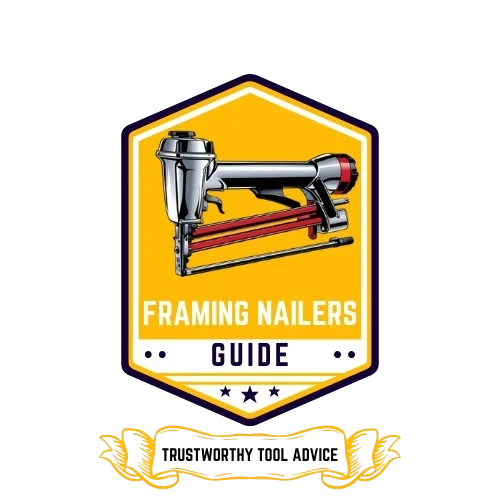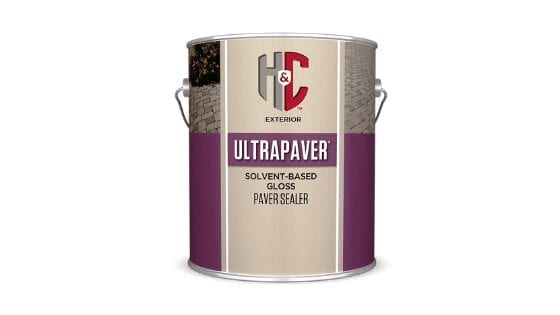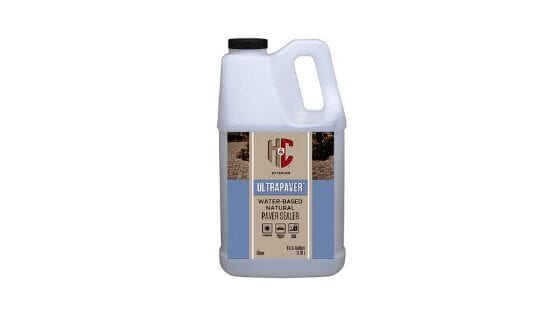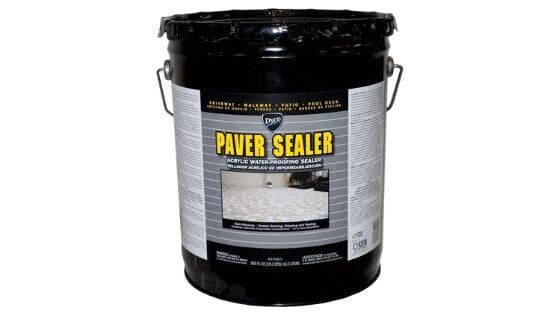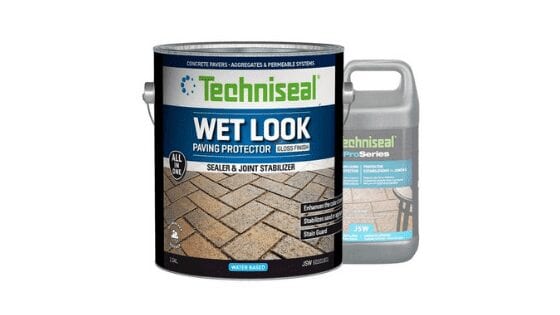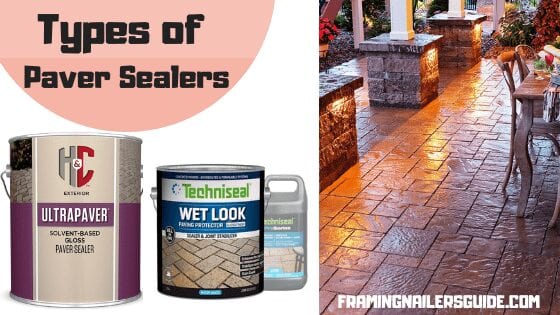
Last Updated on March 1, 2021 by John Patterson
If you are wondering which paver sealer you’re gonna apply on your driveways as there are numerous types, then this article is gonna help you cut to the chase!
Well, paver sealers are specifically used for outdoor pathway maintenance. Generally, pavers are moisture and grease absorbent; they are prone to adhere to stains and grimes.
However, giving your pavers a shiny and glossy outlook can also be the reason to use sealers.
Now the question is which one to apply? Solvent or water-based? And what about acrylics?
To narrow it down, I am going to introduce you to the 5 main types of paver sealers. Let’s wade through then!
Main Types of Paver Sealers Explained
So, there are 5 types of paver sealers available in the market. Now, all of them bear some similarities and differences regarding their texture, appearance, smell, color, density, durability, and whatnot!
Still, the core aspect of applying sealers on your paver is to regain the same look as before. However, you should know which paver sealer was installed before. Otherwise, your current application may get ruptured.
Anyways! The 5 types are:
#1. Solvent Based Paver Sealer
As the name says, solvent-based sealers can dissolve other substances very well. The main advantage of these sealers is the wear coat. Usually, paver sealers are hard to remove, and once you make a mistake, you cant redo the task or fix it. Hence you’ll need to start from scratch.
But with solvent sealers, you can easily remove them whenever you’re expecting a regular cleaning and a fresh look. However, reapplying is also effortless if you notice any sort of blushing problems.
Besides, solvent-based paver sealers offer extended durability and water resistance. As you know, the core problem of concretes is that it has large pores, which are highly moisture absorbent, so resisting humidity is important.
Furthermore, it significantly protects your pavers from harmful UV lights and bears exceptional wear resistance. You can apply them on concrete, brick, metal, plastic, tiles, etc. to bring a glossy or mildly glossy appearance.
#2. Water-Based Paver Sealer
You won’t find it in any decorative, exposed, or broom industry. Because of its density.
Water-based sealers are extremely thin. Thus they provide a thin coat, and the sad part is you cant redo your mistakes while applying it. Moreover, these are hard to repair, and you are gonna need big dollars to repair them.
On the flip hand, moisture is its biggest enemy as it’s already water-based. If your pavers adhere to greasy dust more often, then it will surely get dirty over time. Hence you are bound to repair them more often.
However, they are fairly easy to apply and UV-resistant, as well. Also, it keeps your concrete free from tearing off. Unlike solvent ones, water-based paver sealers deliver a matte finish with low VOC.
#3. Acrylic Paver Sealers
These are universally cherished and can trump over any paver sealers out there. Interestingly, acrylic paver sealers are solvent-based. This means it is highly moisture absorbent, durable, and thick in texture.
One coating is decently enough for filling single gaps. You’re gonna get a semi-glossy to glossy finishing, and luckily these sealers ensure professional touch every time. Now, if you are worried about your concretes, tiles, and stones getting yellow, then this one will be your charmer.
But one thing you need to keep in mind is, the application is very tricky, so you better seek professionals to help or follow the instruction manual.
#4. Breathable Paver Sealers
Just like its name, it lets the internal particles breathe out in the air. Basically, in these sealers, moisture can easily pass out, and thus it’s able to absorb as little dirt as possible.
Here, breathable sealers consist of 3 types: silicate, silane, and acrylic. They are; chemical-based, water repellent, and surface films accordingly. It’s durable, easy to apply, and slightly expensive.
These are highly recommended for pavers, driveways, bricks, and tiles. However, if you are on savings and trying to lessen your expenses, then you can go for solvent-based as it renders almost the same finishing.
#5. Wet Look & Gloss Look Paver Sealers
Both wet and gloss-look paver sealers bear different types. For instance, an acrylic paver sealer can be used for a wet look or gloss look. On the flip hand, there is a penetrating paver sealer that mildly leaves a bright enhancement on the pavers, nothing drastic.
These give a decent wet look, whereas acrylic sealers provide a vibrant and glossy look. Usually, they last for 2 months to 4-5 years. The wet and glossy finish might look catchy to you, but the application can be tough, as well.
That’s why you are supposed to invest more money in seeking help from professional staff. Or you can also do it on your own by following the instruction orderly. Wet look paver sealers are suitable for your driveway, garden or yard bricks, miniature walls, etc.
Frequently Asked Questions
Here we have some of the most commonly asked queries regarding paver sealers:
#1. How long does wet look sealer last?
Answer: 2 months to 5 years.
#2. What are the benefits of sealing pavers?
Answer: The benefits of sealing pavers are extending the lifetime of the concrete, filtering out all the debris from the open pores, removing gross dust and grimes, preventing moss growth, restrain weeds in grass, boosting up the glaze and brightness, etc.
#3. How long does a siloxane sealer last?
Answer: It depends on the quality though these can last 6 months to 7 years.
#4. Should you seal sandstone paving?
Answer: No, they don’t require sealing if it bears standard quality. Also, sandstone paving needs abundant time and money for sealing. Hence it’s advised by many experts not to seal them.
#5. How to apply a paver sealer?
Answer: We have described the step-by-step guide for you.
In Conclusion
Well, there are also other types of paver sealers, which are the sub-types of these main ones.
You will find plenty of similarities as well as a diversity of texture and finishes. Now you have to decide which one to apply according to your requirements, budget, and preference.
Good luck!
